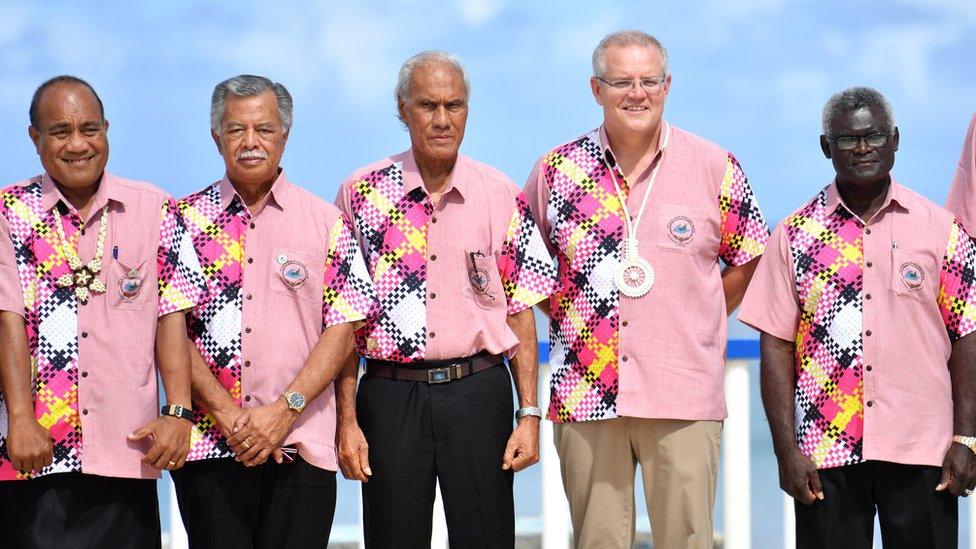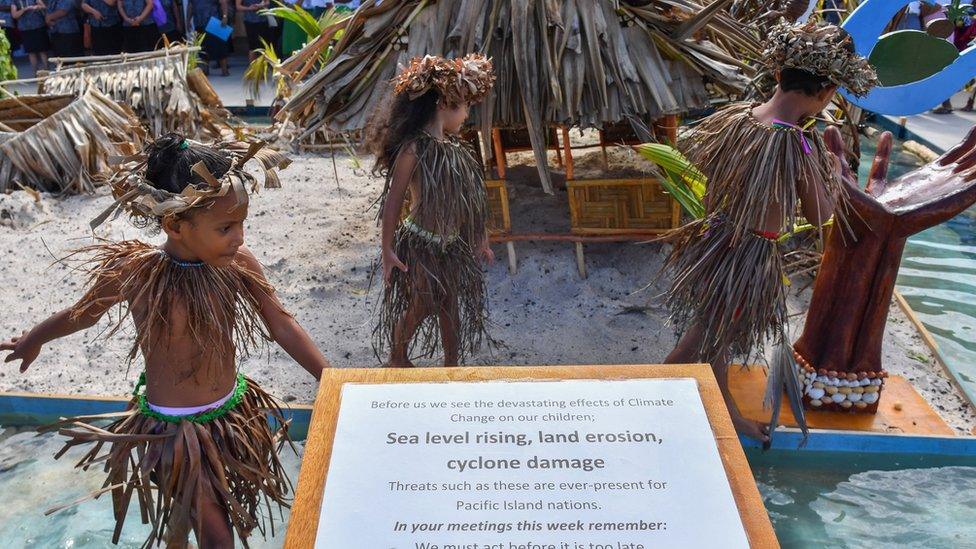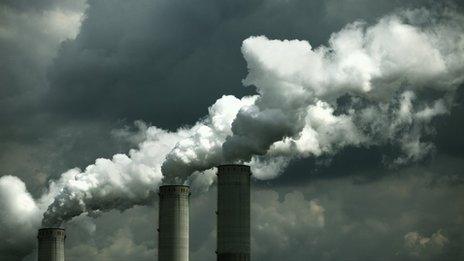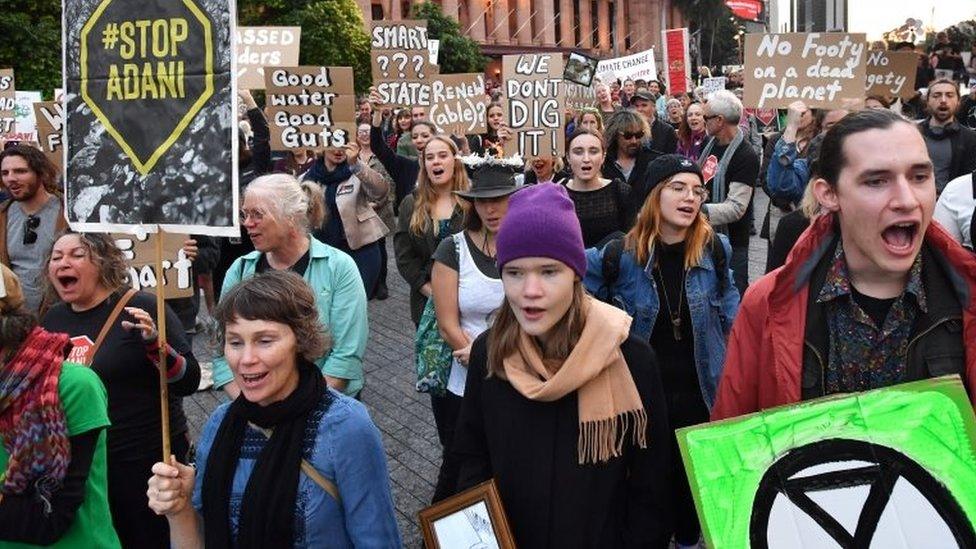Pacific forum turns into row with Australia over climate goals
- Published

Leaders of 18 Pacific nations met at a regional meeting in Tuvalu
Critics have blamed Australia for undermining a joint statement from Pacific island nations which called for stronger action on climate change.
Regional leaders met at the Pacific Islands Forum in Tuvalu this week, where smaller island-dominated states sought a consensus on climate goals.
However Australia, the region's largest emitter, did not endorse some calls - such as an end to coal mining.
Pacific nations said they were disappointed with the revisions.
"I think we should have done more work for our people," said Prime Minister Enele Sopoaga of Tuvalu, the forum's host nation.
He told reporters he had said to Australian Prime Minister Scott Morrison: "You are concerned about saving your economy in Australia... I am concerned about saving my people in Tuvalu."
Mr Morrison defended Australian efforts to fight climate change and said he had held "very respectful" conversations with other leaders.
What is the background?
Small nations in the Pacific are among those bearing the brunt of climate change, with rising sea levels and associated impacts already forcing some residents to relocate.
Many island states have criticised their most powerful neighbour, Australia, for what they say are inadequate actions to fight climate change.

Children with climate change messages greeted leaders at the forum
The Australian government maintains it will reach its Paris climate agreement targets, but argues industries including coal remain important to local job creation and energy needs.
It is a touchy issue, however - and not just because of climate concerns. Australia has recently tried to strengthen its relationships in the Pacific, amid concerns about China's growing influence in the region.
What happened at the forum?
The majority of the 18 nations at the forum agreed to stronger climate goals, with only Australia - and to a lesser extent New Zealand - holding objections.
Following 12 hours of negotiations, the group eventually produced the Kainaki II declaration, a statement which reiterated many of the existing goals under the Paris agreement.
The statement fell short of a more ambitious communiqué endorsed by many Pacific states earlier this week, which had demanded an immediate end to coal mining.
Climate change: How 1.5C could change the world
Australia has refused to submit to restrictions on coal to protect its local industry. In June, it approved a controversial major new coal mine in Queensland to be operated by India's Adani.
Prior to the forum, it pledged $A500m (£280m; $340m) to Pacific island nations for renewable energy projects - money which was redirected from Canberra's existing aid budget. Pacific leaders said a cash injection was not enough.
Mr Sopoaga said Tongan Prime Minister Akilisi Pohiva had been left in tears after one climate change presentation at the forum, saying "such is the passion".
Mr Morrison reiterated that Australia would meet its obligation to cut emissions by 26% on 2005 levels by 2030.
However, the UN has previously warned that it is not on track to achieve those goals.
- Published27 November 2018

- Published13 June 2019
